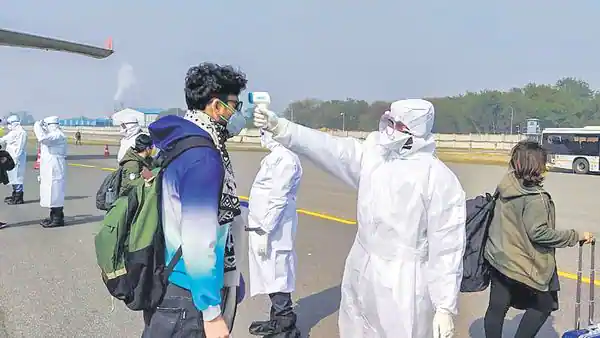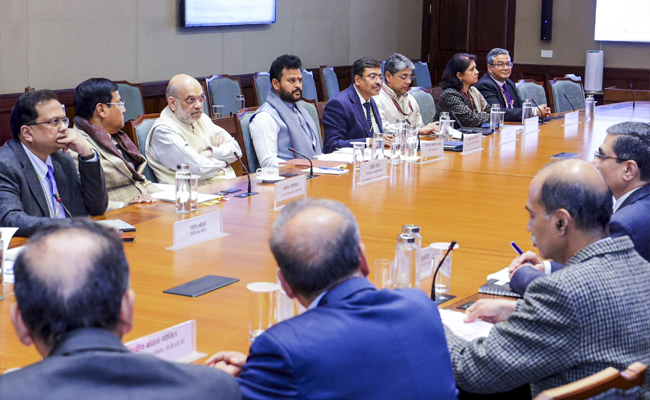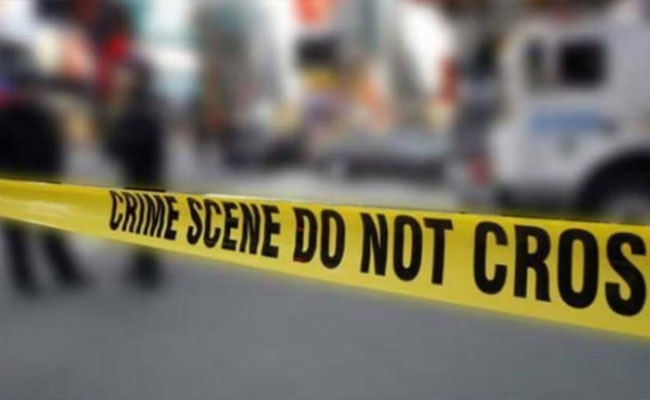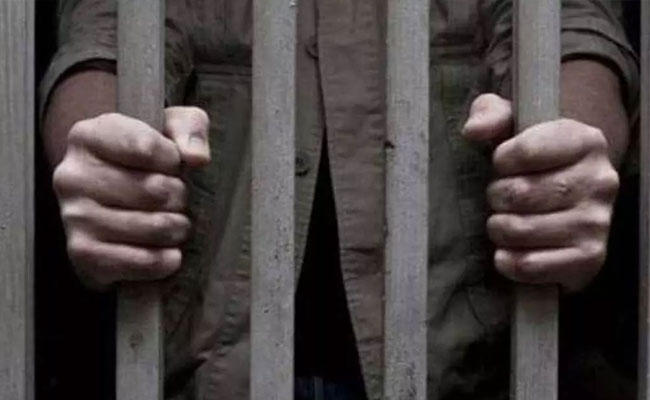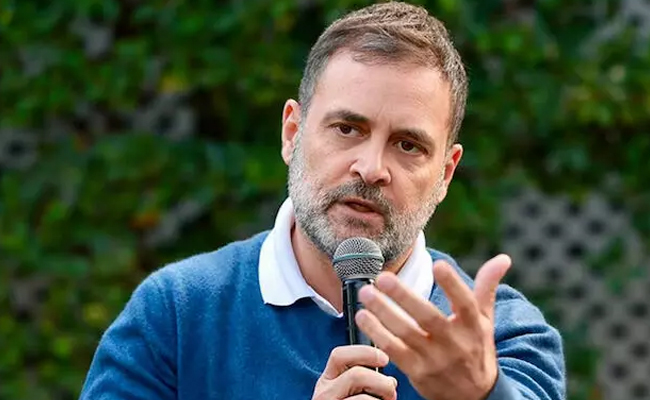Bengaluru, Apr 25: Amid fresh COVID-19 concerns in different parts of the country and apprehensions about a possible fourth wave of the pandemic, the Karnataka government on Monday decided to issue guidelines making wearing face masks and maintaining social distancing compulsory.
The decision was taken at a meeting headed by Chief Minister Basavaraj Bommai with senior ministers, officials and the COVID-19 technical advisory committee consisting of experts here, to review the situation in the state amid concerns over a possible fourth wave.
"Masks should be worn compulsorily, especially at places where there is a crowd and in indoor places, social distancing has to be maintained. Guidelines will be issued today to this effect. We have not taken any decision regarding imposing any penalty immediately," Health Minister K Sudhakar said.
Speaking to reporters after taking part in the meeting, the minister said the number of positive cases have slightly increased in Bengaluru, where the positivity rate is 1.9 per cent, and the situation will be monitored and supervised with guidelines about the treatment if required.
"On April 27, the Prime Minister will be holding a video conference with Chief Ministers and Health Ministers of all states, where more guidance and information may be shared. After that, we will hold another round of meeting here and further measures, if required, will be taken," he added.
Pointing out that according to the World Health Organisation, health issues like hospitalisation and ICU care are required more among unvaccinated people, the minister said the number of people who have taken preventive dose (third dose) is low, and more people will have to get the booster jabs.
"People above 60 years are being given the preventive or third dose for free. Don't wait for the next wave, take the preventive dose and protect yourselves," he advised.
Noting that countries like South Korea, Thailand and Japan have been reporting a spike in cases, Sudhakar said the passengers travelling directly to the state from these countries will be specially monitored at the airports and their details and contact numbers will be collected, and they will be telemonitored at home.
In response to a question, the minister said Omicron BA.2 sub-lineages are emerging, but until an official report comes from the INSACOG lab, it will be difficult to say which variant is prevalent.
"They (lab) have collected samples for genomic sequencing and we may get a report in two to three days," he said, adding that if the samples are Omicron sub-lineages, symptoms will be more or less the same.
Highlighting that about 10,000 COVID tests are being conducted on average per day, Sudhakar responded to a question and said the Centre's guidelines about testing those symptomatic is being followed by the state.
Regarding severity of the infections, he said the state government has obtained information regarding the situation in other states like Delhi where there are no major issues and the rate of hospitalisation or those requiring ICU care is low, whereas in foreign countries hospitalisation at few places is more and it may be because of low rate of vaccination there.
Responding to a question, Sudhakar said the guidelines on masks and maintaining social distance are applicable to all whether it is the common man or any political party, and they need to be followed in the interest of public health at large.
Karnataka recorded 60 fresh COVID-19 cases and zero fatalities on Sunday, taking the total infections in the state to 39,46,934, and death toll to 40,057.
Let the Truth be known. If you read VB and like VB, please be a VB Supporter and Help us deliver the Truth to one and all.
New Delhi (PTI): To beef up the security infrastructure of ports, the government will set up a statutory body -- the Bureau of Port Security -- that will ensure timely analysis, collection and exchange of security-related information of ports and vessels, officials said on Friday.
Union Home Minister Amit Shah on Thursday convened a meeting for the constitution of the dedicated body, the Bureau of Port Security (BoPS), which was attended by the Minister of Ports, Shipping and Waterways, Sarbananda Sonowal, and the Minister of Civil Aviation, Ram Mohan Naidu, an official statement said.
Emphasising that there is a need to establish a country-wide robust port security framework, Shah directed that security measures should be implemented in a graded and risk-based manner, taking into account vulnerabilities, trade potential, location, and other relevant parameters.
ALSO READ: Four arrested in cattle theft case after encounter in UP's Kaushambi
The meeting also noted that lessons learned from the maritime security framework shall be replicated in the aviation security domain, the statement said.
The new body, modelled on the lines of the Bureau of Civil Aviation Security (BCAS), will be constituted as a statutory body under the new Merchant Shipping Act, 2025, and will work under the aegis of the Ministry of Ports, Shipping and Waterways (MoPSW), it said.
Headed by a senior IPS officer as its director general, the BoPS will be responsible for regulatory and oversight functions relating to the security of ships and port facilities.
"During the transition period of one year, the director general of shipping shall function as the director general of BoPS," the statement said.
"The BoPS will ensure timely analysis, collection and exchange of security-related information, with a special focus on cybersecurity, including a dedicated division to safeguard port IT infrastructure from digital threats," it said.
The government has designated the Central Industrial Security Force (CISF) as a recognised security organisation (RSO), responsible for undertaking security assessments and preparation of security plans for port facilities.
The Central Armed Police Force (CAPF) will train and build the capacities of private security agencies (PSAs) engaged in port security.
"These agencies shall be certified and appropriate regulatory measures shall be introduced to ensure that only the licensed PSAs operate in this sector," the statement said.

